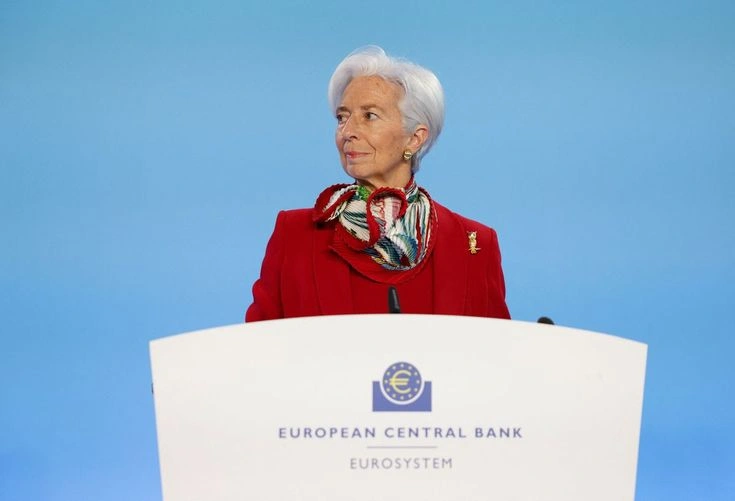
Christine Lagarde, President of the European Central Bank (ECB), has called on European leaders to adopt a pragmatic approach to transatlantic trade by increasing purchases of American goods. Her plea comes amid rising concerns over potential trade disputes with the re-elected Trump administration, which has signaled its readiness to enforce tariffs on European imports. Lagarde’s remarks highlight the urgency of aligning with U.S. economic interests to avert a damaging trade war that could destabilize global markets.
What’s Happening?
Lagarde’s statement comes as Europe faces mounting pressure from the U.S. to address its trade imbalances and support American industries. During a high-profile economic summit in Brussels, Lagarde emphasized the need for Europe to expand its imports of U.S. products, including liquefied natural gas (LNG) and defense equipment.
Her comments reflect concerns that Trump’s “America First” policies could lead to retaliatory tariffs on European goods, further straining an already fragile global economy. Lagarde framed her proposal as a proactive measure to transform challenges into opportunities for reform within the EU.
Key Players: Christine Lagarde and Trump’s Administration
Christine Lagarde:
As ECB President, Lagarde has been a vocal advocate for economic stability and cooperation. Her pragmatic approach underscores the importance of maintaining strong transatlantic ties amidst geopolitical tensions.
Trump’s Stance:
President-elect Trump has reiterated his commitment to addressing trade imbalances, warning that European reluctance to buy American goods could result in punitive tariffs. His administration has pointed to sectors like automotive manufacturing and agriculture as key areas of concern.
Public Opinions
Supporters of Lagarde’s Proposal:
- Proponents argue that boosting imports from the U.S. could strengthen EU-U.S. relations while addressing economic vulnerabilities.
- “Lagarde is right. A cooperative approach is better than risking a trade war that could hurt everyone,” said Klaus Müller, a German economist.
Critics of the Strategy:
- Critics fear that prioritizing American goods could undermine European industries and reduce the EU’s bargaining power.
- “Buying American might placate Trump, but it could erode Europe’s competitiveness in the long run,” said Marie Lefevre, a French trade union leader.
Facts to Note
Economic Context:
- The EU is a major trading partner for the U.S., with annual trade totaling over $1 trillion.
- Key areas of contention include tariffs on European cars and subsidies for American agricultural products.
Energy and Defense Sectors:
- The U.S. has emerged as a leading LNG exporter, and Europe’s increased reliance on American energy aligns with its goals of reducing dependence on Russian gas.
- Defense purchases from U.S. firms
- could bolster NATO and address security concerns.
- Potential Reforms:
- Lagarde’s call for action includes modernizing EU industries and improving economic integration to remain competitive globally.
Issues and Impacts
For Europe:
- Increasing imports from the U.S. could stabilize transatlantic relations but might face resistance from European industries and policymakers.
- Lagarde’s strategy highlights the need for structural reforms within the EU to strengthen its economic position.
For the U.S.:
- Greater European purchases of American goods would support Trump’s domestic agenda and enhance U.S. manufacturing and energy sectors.
- A cooperative EU reduces the likelihood of escalating trade tensions, benefiting global markets.
For Global Trade:
- Aligning European trade policy with U.S. interests could prevent a trade war, ensuring stability in international markets.
- However, such alignment might deepen divisions within the EU over its economic priorities.
What’s True and Untrue?
True:
- The U.S. has expressed dissatisfaction with Europe’s trade practices and warned of potential tariffs.
- Lagarde’s comments reflect genuine concerns about the economic and geopolitical consequences of a trade war.
Untrue or Exaggerated:
- Claims that Lagarde is advocating for complete alignment with U.S. trade policies are misleading. Her proposal seeks balance, not submission.
- Suggestions that buying American
- would entirely shield Europe from tariffs overlook broader political and economic complexities.
Conclusion
Christine Lagarde’s call to “Buy American” reflects a pragmatic approach to navigating transatlantic trade tensions. While her strategy has sparked debate, it underscores the importance of collaboration to maintain global economic stability. As Europe seeks to balance its interests with U.S. demands, the stakes for global trade and diplomacy remain high.
Veritas World News will continue to monitor these developments, providing insights into the evolving dynamics of U.S.-EU relations.
#ChristineLagarde #TradeWar #BuyAmerican #Trump2024 #GlobalEconomy #USEURelations #EconomicReform
